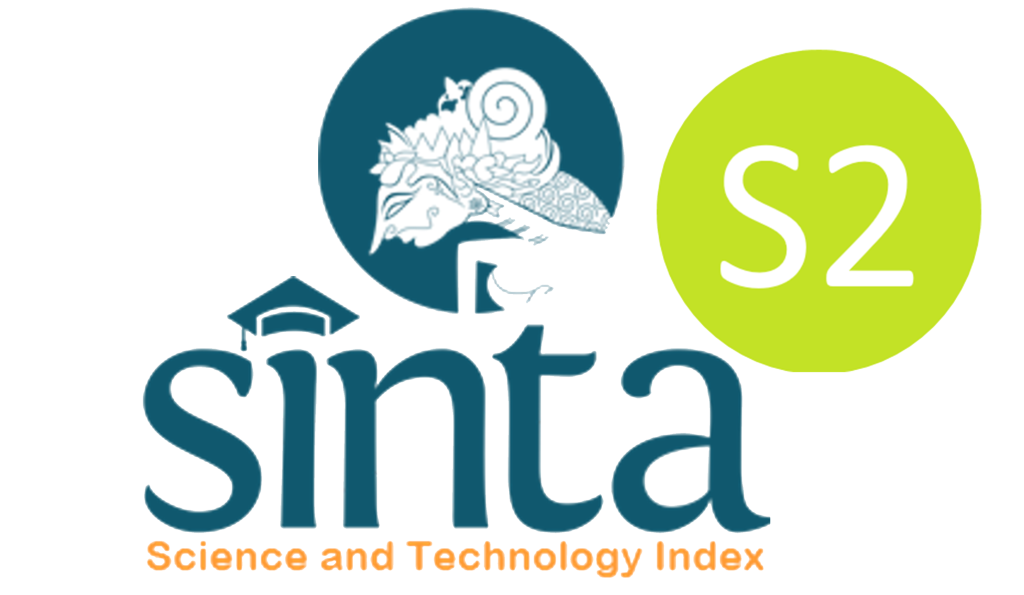THE ILLEGAL TRADING (RED MARKET) OF MEDICINAL PLANTS IN SOUTH AFRICAN RURAL AREAS: A SCOPING REVIEW
DOI:
10.54443/ijerlas.v4i4.1858Published:
2024-07-30Downloads
Abstract
The widespread of illegal trading (Red market) of medicinal plants has reached a concerning phase in South Africa rural areas. This prohibited practice involves a global black market for instant monetary gain, usually committed by illegal collections and sales of these plants, fuelling their scarcity. Therefore, the objective of this study was to explore the illegal trading of medicinal plants in South African rural areas. This qualitative scoping review was supported by the 2005 adapted version of the methodology framework by Arksey, Hilary & O’Malley, Lisa of 2005 to search for relevant studies from notable databases and internet sources, focusing on South African rural areas and other international countries, optionally. The Preferred Reporting Items for Systematic Reviews and Meta-Analyses (PRISMA) will be used for data analysis, supported by the inductive Thematic Content Analysis (TCA).The findings of this study present that the illegal trading of medicinal plants is on the rise in South African rural areas owing to the illegal trading, with the potential criminals reportedly less likely to face consequences of their ill actions and the greatest factor of their scarcity is attributed to this practice, with less efforts offered for greater adequate attention geared towards conservation and safeguarding of these vulnerable plants. It is concluded and recommended that the chain of events of illegal trading should be established closely looking at a period when this illegal action is committed, reported to the selected relevant stakeholders, such as the ‘African National Healers Association (ANHA), Department of Correctional Services (DCS), Department of Justice and Constitutional Development (DoJ & CD), PlantZAfrica, South African Local Government Association (SALGA), South African National Biodiversity Institute (SANBI), South African Police Service (SAPS), who are responsible for the investigation, prosecution, incarceration and rehabilitation of suspected and convicted criminals. Moreover, effective deterrents to this criminality should be further researched to broaden access to justice and strengthen prevention, combating and investigative initiatives by relevant stakeholders in the local government sphere, where towns and surrounding rural areas are going to be accountable for the protection and preservation of heritage.
Keywords:
Illegal trading, Medicinal plants, Red market, Rural areas, Scoping review, South AfricaReferences
Arksey, H & O'Malley, L. 2005. Scoping studies: Towards a methodological framework. International Journal of Social Research Methodology, 8(1):19-32.
Bwanga, O. 2020. How to conduct a qualitative systematic review to guide evidence-based raise in Radiography? International Journal of Sciences: Basic and Applied Research, 52(1): 205-2013.
Dan, V. 2017. Empirical and non-empirical methods. Retrieved from: https://www.ls1.ifkw.uni- muenchen.de/personen/wiss_ma/dan_viorela/.
Dold, A.P & Cocks, M.L. 2002. The trade in medicinal plants in the Eastern Cape Province, South Africa. South African Journal of Science, 98(11), 589-597.
Hamilton, A.C. 2004. Medicinal plants, conservation and livelihoods. Biodiversity and Conservation, 13(8), 1477-1517.
Hinsley, A & Roberts, D. L. 2018. The wild origin dilemma. Biological Conservation, 217(1), 203-206.
Kaminski, K., Beckers, F & Unger, J. G. 2012. Global internet trade of plants–legality and risks. EPPO Bulletin, 42(2), 171-175.
Lavorgna, A & Sajeva, M. 2021. Studying illegal online trades in plants: market characteristics, organisational and behavioural aspects, and policing challenges. European Journal on Criminal Policy and Research, 27(4), 451-470.
Maluleke, W. 2020. The African scare of Fall Armyworm: Are South African farmers immune? International Journal of Social Sciences and Humanity Studies, 12 (1), 207-221.
Maluleke, W & Shibambu, N.F. 2021. Exploring illegal harvesting and theft of the selected South African endangered indigenous plants on the Red data list: Case studies of rural areas. ADRRI Journal of Arts and Social Sciences, 18, 3(6), 244-295.
Mander, M. 1998. Marketing of indigenous medicinal plants in South Africa. A case study in KwaZulu-Natal. Food and Agriculture Organisation: Rome.
Mays, N., Roberts, E & Popay, J. 2001. Synthesising research evidence, In: Studying the organisation and delivery of health services: Research methods. Fulop, N, Allen, P., Clarke, A & Black, N (Eds). Routledge: London.
Meke, G.S., Mumba, R.F., Bwanali, R.J & Williams, V.L. 2017. The trade and marketing of traditional medicines in southern and central Malawi. International Journal of Sustainable Development and World Ecology, 24(1), 73-87.
Moeng, ET., & Potgieter, M. J. 2011. The trade of medicinal plants by Muthi shops and street vendors in the Limpopo Province, South Africa. Journal of Medicinal Plants Research, 5(4), 558-564.
Mokwena, RJ & Maluleke, W. 2020. South African rural communities and the land restitution process: The application of criminological and legal theories in identifying obstacles to nightful allocations of land. Gender and Behaviour Journal, 18(3), 16145-16156.
Muka, T., Glisic, M., Milic, J., Verhoog, S., Bohlius, J., Bramer, W., Chowdhury, R & Franco, O.H. 2020. A 24-step guide on how to design, conduct, and successfully publish a systematic review and meta-analysis in medical research. European journal of Epidemiology, 35(2), 49-60.
National Oceanic and Atmospheric Administration. 2016. Illegal, unreported, and unregulated (IUU) fishing. www. nmfs.noaa.gov/ia/iuu/iuu_overview.html.
Omogbadegun, Z., Uwadia, C., Ayo, C., Mbarika, V., Omoregbe, N., Otofia, E & Chieze, F. 2011. Multimedia-based medicinal plants sustainability management system. International Journal of Computer Science Issues, 8(5), 492-503.
Phelps, J., Biggs, D., & Webb, E. L. 2016. Tools and terms for understanding illegal wildlife trade. Frontiers in Ecology and the Environment, 14(9), 479-489.
Rasethe, M.T., Semenya, S.S & Maroyi, A. 2019. Medicinal plants traded in informal herbal medicine markets of the Limpopo Province, South Africa. Retrieved from: https://pubmed.ncbi.nlm.nih.gov/31118951/.
Shibambu, N.F. 2023. A review study on alternative management methods to sustain medical plants in South Africa. Social Sciences International Research Conference Proceedings, Online 13-15 October, Organised and hosted by the Faculty of Economic and Management Sciences, North-West University, South Africa, e-ISBN number: 978-0-7961-2427-2 (e-book), 300-312.
Shibambu, N.F. 2022. Interpretive study of commercialisation of medicinal plants in South Africa: prospects and challenges. Social Sciences International Research Conference Proceedings, Online 19-21 October, organised and hosted by the Faculty of Economic and Management Sciences of the North-West University, South Africa, in partnership with the Open University of Mauritius, e-ISBN number: 978-0-620-96741-9(e-book), 212-223.
Shibambu, NF & Maluleke, W. 2023. A review study on alternative conversation and management methods to sustain medicinal plants in South Africa. E-Journal of Humanities, Arts and Social Sciences, 4(8), 1006-1014.
Shibambu, NF., Malatji, M.K & Maluleke, W. 2021. A Systematic Analysis of strategic management methods for conservation of Medicinal Plants in South African rural communities. European Journal of Economics, Law and Social Sciences, 5(3), 1006-1025.
Shibambu, NF & Maluleke, W. 2023. Conservation and Theft of Endangered Plants in South African Rural Communities: A Review of Literature. Pakistan Journal of Criminology, 15(04), 331-348.
Shibambu, N.F. 2024. The effects of urbanisation on the availability of medicinal plants at Malamulele area, Limpopo Province, South Africa. Unpublished Master of Arts: Anthropology. University of Limpopo: Sovenga.
Shibambu, N.F, Malatji, M.K & Maluleke, W. 2022. The effects of urbanisation on the availability of medicinal plants (Red data species) in the Malamulele area of Limpopo Province, South Africa. Social Sciences International Research Conference Proceedings, Online 19-21 October, organised and hosted by the Faculty of Economic and Management Sciences of the North-West University, South Africa, in partnership with the Open University of Mauritius, e-ISBN number: 978-0-620-96741-9(e-book), 585- 598.
Shibambu, N.F. 2023. The selected effects embedded from illegal occupation and theft of medicinal plants: A systematic study on rural areas of Limpopo Province. International Journal of Social Science Research and Review, 6(6), 331-342.
Srivastava, P., Singh, M., & Chaturvedi, R (Eds). 2020. Herbal medicine and biotechnology for the benefit of human health, In: Animal biotechnology. Academic Press: Beaconvale, Cape Town, 613-629.
Subrat, N., Iyer, M & Prasad, R. 2002. The ayurvedic medicine industry: Current status and sustainability. Ecotech Services, London, and International Institute for Environment and Development: New Delhi.
Rantho, K.M, Matlakala, F.K & Maluleke, W. 2023. Psychological challenges of distant parenting on mothers: Scoping review. Eurasian Journal of Social Sciences, 11(2), 59-67.
United Nations Office on Drugs and Crime. 2016. World wildlife crime report: Trafficking in protected species. The United Nations Office on Drugs and Crime: Vienna.
United Nations Office on Drugs and Crime. 2002. Results of a pilot survey of forty selected organised criminal groups in Sixteen countries. Retrieved from: https://www.unodc.org/pdf/crime/ publications/Pilot_survey.pdf.
Williams, V.L., Victor, J.E., & Crouch, N.R. 2013. Red listed medicinal plants of South Africa: status, trends, and assessment challenges. South African Journal of Botany, 86(1), 23-35.
Wodah, D & Asase, A. 2012. Ethnopharmacological use of plants by Sisala traditional healers in northwest Ghana. Pharmaceutical Biology, 50(7), 807-815.
License
Copyright (c) 2024 Witness Maluleke, Nyiko Faith Shibambu

This work is licensed under a Creative Commons Attribution 4.0 International License.









